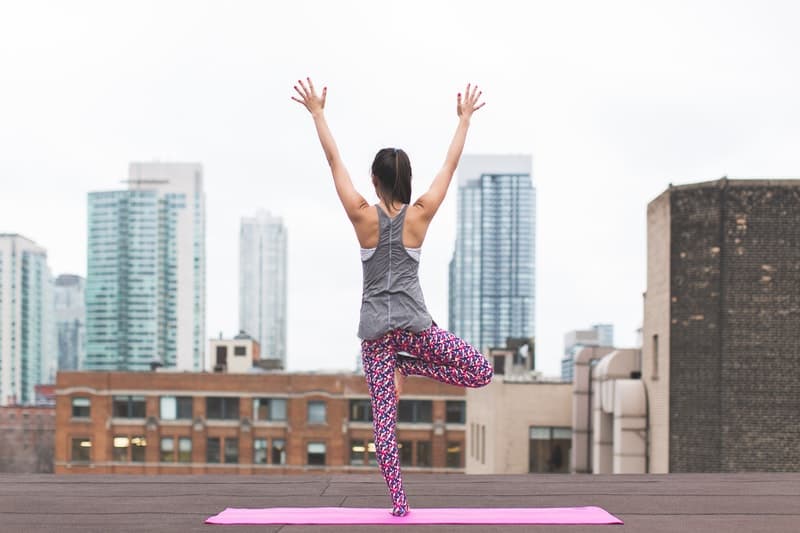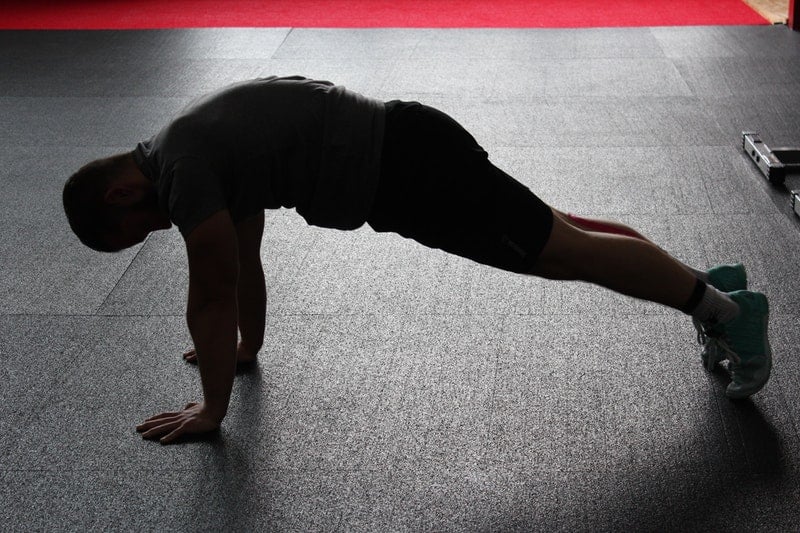Last Updated on February 28, 2024
According to the Happy Planet Index (yes, it does exist), USA is ranked 108th among 140 world countries. Wanna move your country to the top? Hit the gym and do some exercise!
At first glance, this idea may not seem very tempting, especially if you don’t have sports habits, but it really helps to improve physical and mental health and is definitely worth a try. Even 15 minutes of basic exercises a day keeps the negative away, let alone systematic workout!
Yes, a sport is a great way to boost your mood. Studies have shown that any physical activity is useful not only for our body (weight control, reducing the risks of different diseases, strengthening your bones and muscles, increasing your flexibility) but also for our mind.
Exercise can improve your mental health, help you fight off feelings of depression, anxiety, and stress, leading to a happier lifestyle. As a rule, people who regularly train have a better mood in their daily lives.
Exercise on a regular basis improves your health, improves the ability to socialize – both in personal and professional spheres. Sport takes your mind, raises optimism, develops positive thinking, promotes the secretion of endorphins (hormones of happiness), helps to take the edge off, and more, and more, and more…
So, how does exercise improve mood? What is the mechanism of action? And how to boost this effect? Are there any tricks or secrets? Let’s learn now…
How Can Exercise Help You Manage Stress?

Before coming to the how-to guide let’s first figure out what are the scientifically proven mental effects of sport and how exercise helps your brain:
- Helps boost production of endorphins and serotonin – the “feel good” chemicals.
- Removes your focus from stress to the activity.
- Improves sleep (cardio and strength training in the morning or afternoon, yoga or gentle stretching in the evening).
- Reduces negative moods.
- Improves cognitive performance.
- Improves your memory and thinking: endorphins help to concentrate.
- Stimulates the growth of new brain cells and prevents age-related decline.
- Reduces any pain.
- Helps to resist stress.
- Increases energy levels: physical activity makes your heart work faster, that gives you more get-up-and-go.
- Reduces tension and anxiety.
- Fosters your sense of self-worth and make you feel strong, powerful, and enjoy your appearance, raising the self-esteem.
How to Make Exercise a Pleasure?

If you’re wondering how to get in a better mood through exercise, your main task is to realize the importance of turning your workout from a boring routine into an amazing habit.
Charles Duhigg, the author of the best-selling book The Power of Habit: Why We Do What We Do in Life and Business, shares his advice on how to make yourself do something daily and enjoy the process:
1. Put your alarm clock under the activewear before you go to bed.
This technique is so simple, but still is one of the most effective. Just put the sports clothes on the alarm clock or phone and it will be much easier to convince yourself to train in the morning.
2. Track your progress.
Your goal is to turn daily exercises into a pleasant habit. And what can motivate more than your fit body, clear mind, and obvious progress? To make it obvious, note your weight, the distance you do during the fixed time, the weight you lift, or any other targets once a week, or even more often.
3. Start small.
Start from doing a 5-minute morning exercise 3 times a week. It’s not a lot, is it? And it’s really easy, right? The task is so simple that anyone can cope with it and gradually it will grow into a habit. Instead of huge and frightening aims, set little and easily attainable ones.
4. Make it comfortable.

No matter if you’re training in a gym, or doing some exercise at home, cozy activewear and a pair of cool and comfy shoes (see here http://thecrossfitshoes.com/best-running-shoes-for-supination/) are essential. The better you equip yourself the more enjoyable the activity is.
5. Don’t do a lot – do on time.
According to a recent research of the Pennsylvania University, it doesn’t matter how long you have been working out, but the fact you’ve done it matters.
Gretchen Reynolds, the New York Times author, also stated in her book The First 20 Minutes that in order to significantly improve your physical and mental health there’s no need to become a professional athlete. On the contrary, it takes only 20 minutes to reach the peak of happiness and productivity.
6. Reward yourself.
Treat yourself with little pleasant “prizes” after each achievement in your training. Promise yourself a tasty smoothie after a 30-minutes run, or a hot bubble bath after the completed set of exercises. In other words, always celebrate your success.
7. Make your workout casual.
This trick is a real catch for the lords of time-management. Have lots of things to do? Combine your workout session with washing the car, cleaning the house, or entertaining the baby.
You can cycle to work rather than drive, choose the stairs instead of the elevators, take a walk to the store or office – just make physical activity an integral part of your lifestyle.
8. Socialize while exercising.

Another way to boost your mood through exercise is to do it with a friend, a soulmate, or even make it a fun family activity.
9. Do activities you enjoy – have fun.
Any classes and activities make the difference – so, choose the one you really like. Dancing or yoga, martial arts or bowling (best bowling balls), hiking or tennis, running or Zumba, gardening or kickboxing, mountain climbing or parkour – every activity is just perfect.
Bottom Line
Thus, any kind of exercise has an incredibly positive effect not only on the physical health and body aesthetics but also on the mood and mental well-being. A rush of power, positive emotions, and burst of energy are only a small list of the sport’s advantages.
Don’t put off improving your mental and physical health until the next Monday!
Make friends with sport and have an endless good mood!

